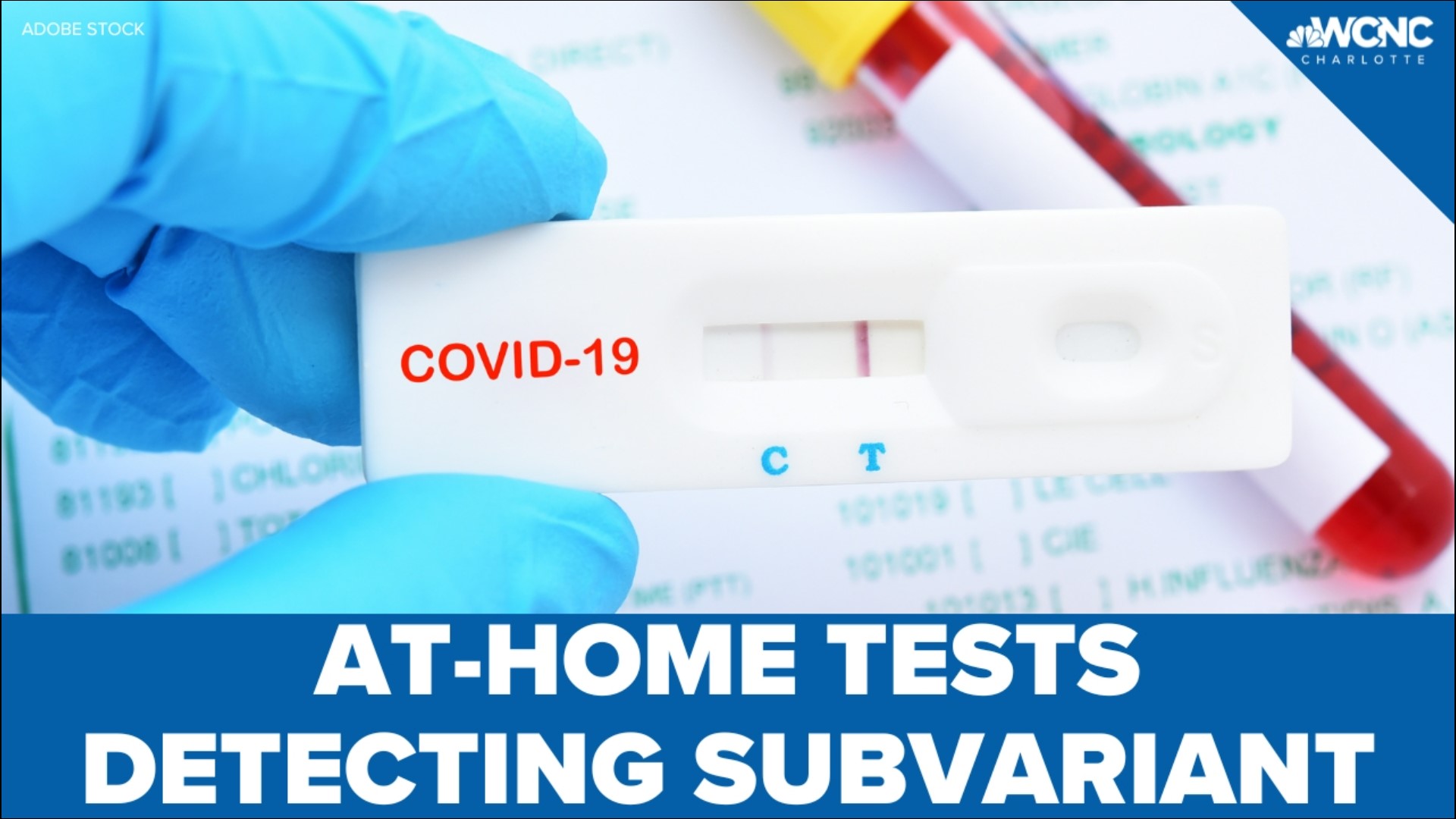CHARLOTTE, N.C. — The COVID-19 omicron subvariant BA.5 makes up 82% of new cases in the U.S., according to the CDC's variant proportions tracker. As the subvariant's dominance grows, so do the number of new infections and people going to the hospital with the virus.
Some people have recently reported using at-home tests after developing symptoms, getting negative results, then testing again at the doctor's office, only to get a positive result. The situation is leading them to ask whether the at-home kits still detect COVID-19 in its latest form.
THE QUESTION
Do at-home COVID-19 tests detect BA.5?
OUR SOURCES
- The Food and Drug Administration
- Dr. Brannon Traxler, Public Health Director, South Carolina's Department of Health and Environmental Control
THE ANSWER
Yes, at-home COVID-19 tests detect BA.5, but possibly with less sensitivity than prior variants.
WHAT WE FOUND
The FDA says that antigen tests, which are the type of rapid tests available over-the-counter for use at home, have generally been less sensitive than PCR tests.
PCR tests are the tests most likely to be offered at the doctor's office or clinic, with results that can take longer than a few minutes.
Because of their reduced sensitivity, antigen tests have long called for a series of safety nets, in case of a false negative.
"The instructions often on many of these rapid tests say that, if you have symptoms, but test negative, then to wait 24 hours and then retest," Traxler said.
The FDA says testing again is particularly important for those experiencing COVID-19 symptoms or with a high likelihood of COVID-19 exposure.
The agency also reports that initial data suggests antigen test sensitivity might be further reduced with some of the newer variants.
"We have seen throughout omicron... if you test very early in your symptom onset, particularly if you are vaccinated, and maybe don't have extremely severe symptoms, then you may test negative," Traxler said.
Contact Vanessa Ruffes at vruffes@wcnc.com and follow her on Facebook, Twitter and Instagram.
VERIFY is dedicated to helping the public distinguish between true and false information. The VERIFY team, with help from questions submitted by the audience, tracks the spread of stories or claims that need clarification or correction. Have something you want VERIFIED? Text us at 704-329-3600 or visit /verify.

